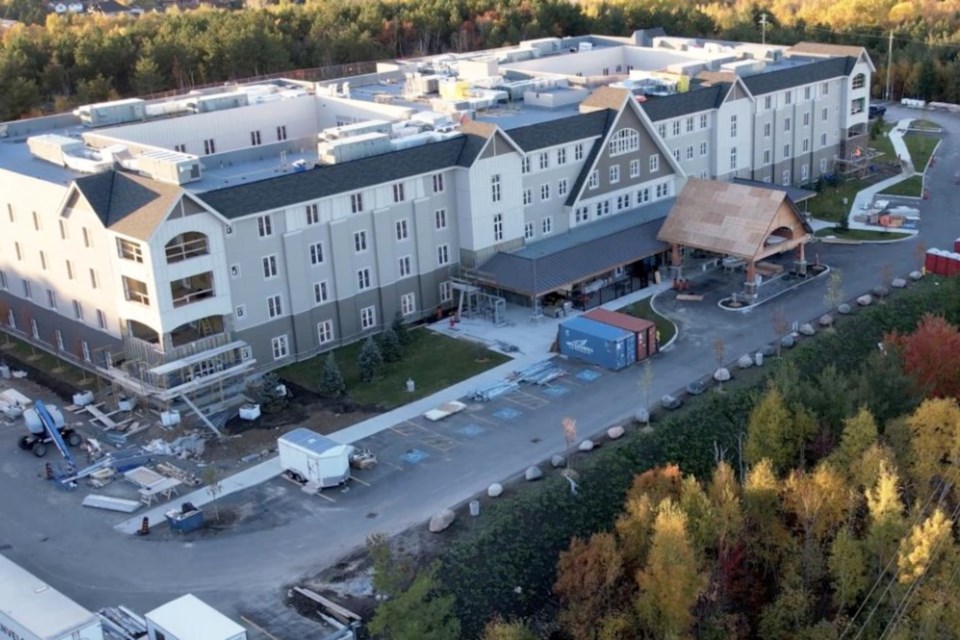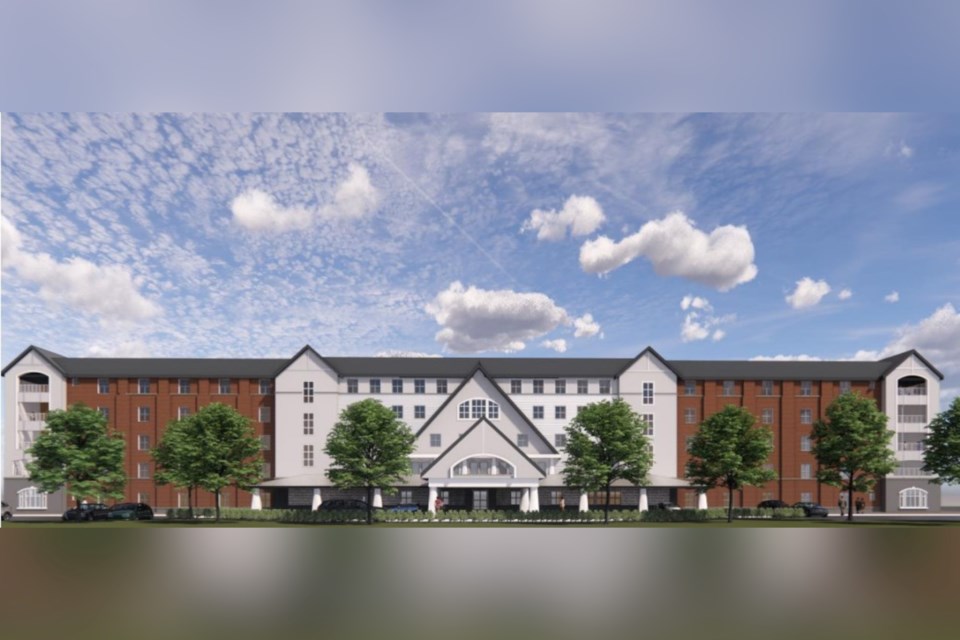With Extendicare Countryside slated to open early next year, the organization behind the project is already looking at their next project: a 320-resident home in the Minnow Lake neighbourhood.
Projected to cost approximately $100 million, senior government relations consultant Zane Colt described the project is “temporarily shelved” due to local challenges.
Colt aired Extendicare’s challenges during the Nov. 29 Future-Ready Development Ad-Hoc Committee of city council, at which industry insiders were asked to share their experiences.
The goal, Mayor Paul Lefebvre clarified, is to “ensure we do the best we can with the processes and systems to ensure as we grow our community that we make it easier and a welcoming community when it comes to business development and growth.”
Extendicare operates two long-term care homes in Sudbury, including Extendicare York (333 York St.) and Extendicare Falconbridge (281 Falconbridge Rd.)

Extendicare Falconbridge is being replaced by the 256-resident Extendicare Countryside building slated to open early next year. Located on Algonquin Road in the city’s South End, construction started in 2020 and the building was estimated last year to cost $62 million.
Extendicare Countryside will replace the Falconbridge building, which Colt said was built in the 1970s, and built to standards of the day.
Extendicare York is in a similar situation, and would be replaced by the Minnow Lake building, which would also increase its resident count by 54, providing a new total of 320 long-term care spaces.
The existing buildings are “both older homes with limited apartment space for residents, especially after COVID,” Colt said, adding that with carts and lifts in hallways, it’s rare there’s enough space for two wheelchairs side-by-side to make their way through.
“Our goal is to redevelop these and almost 30 other homes across the province into brand-new state-of-the-art buildings to enhance residents’ quality of life,” he said.
The building planned to take shape in Minnow Lake would allow all residents to have their own rooms, and employ modern design standards, such as state-of-the-art HVAC systems.
This project has been temporarily shelved due to a confluence of Sudbury-specific issues.
Significant rock blasting is required, which would add an additional $3 million to its cost, Colt said. They also had to redesign the project to accommodate for a lack of basement level and have come up against a lack of available skilled workers in the Greater Sudbury area.
“There’s no general contractor in Sudbury of a sufficient size with experience to work on projects of this scale,” he said.
With Extendicare Countryside, they had to award tenders from Manitoba and Toronto, and paid a premium for out-of-town workers alongside added heating costs for winter construction.
Extendicare’s capital funding comes from the province, and the Ministry of Long-Term Care has a blanket policy regardless of geography.
“That is set up by population, it is not set up at all by geographic restrictions, so there is no nuance for building in Northern Ontario,” Colt said, later clarifying that while they have voiced these concerns to the province, they’re thankful to see the city hear them out as well.
Colt advocated for municipal grants to help address the added costs for such things as rock blasting, for the city to offer additional tax-increment equivalent grants, promote education in the trades and set up temporary housing for transient tradespeople.
Extendicare Countryside took advantage of the city’s deferred development charges program, in which development charges are spread out in six payments over five years at a zero per cent interest rate.
To help get the project moving quickly, city building services manager Guido Mazza said they allowed blasting to begin prior to a site-plan agreement being in place, and offered a foundation permit before drawings were ready for issuance.
Representatives from the Greater Sudbury Chamber of Commerce also presented during the Nov. 29 Future-Ready Development Services Ad-Hoc Committee meeting, at which past chair Anthony Davis urged city administrators to empower more of their staff to make decisions.
“That’s my favourite point,” he told the city’s elected officials, adding that if fewer mid-level staff had to wait for approvals from senior employees, there would be fewer project delays.
The Future-Ready Development Services Ad-Hoc Committee’s next and final-scheduled meeting is slated to take place on Dec. 7 at 2:30 p.m. During that meeting, city staff will provide a summary of results from committee meetings to date.
It’s anticipated the committee will compile what they have heard and send a series of recommendations to city council as a whole for potential changes in municipal policy and procedures to help reduce barriers to economic growth.
Tyler Clarke covers city hall and political affairs for Sudbury.com.
